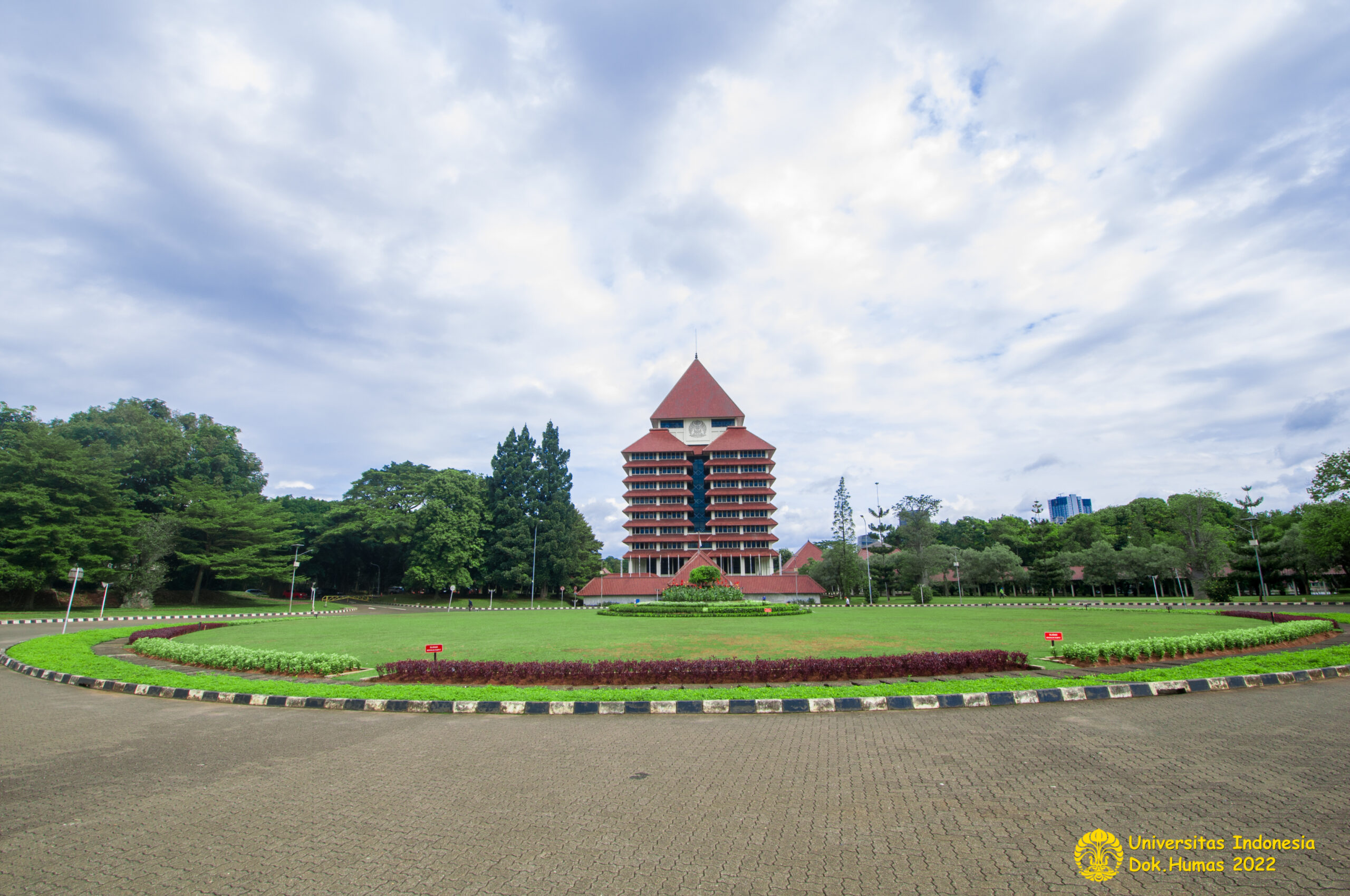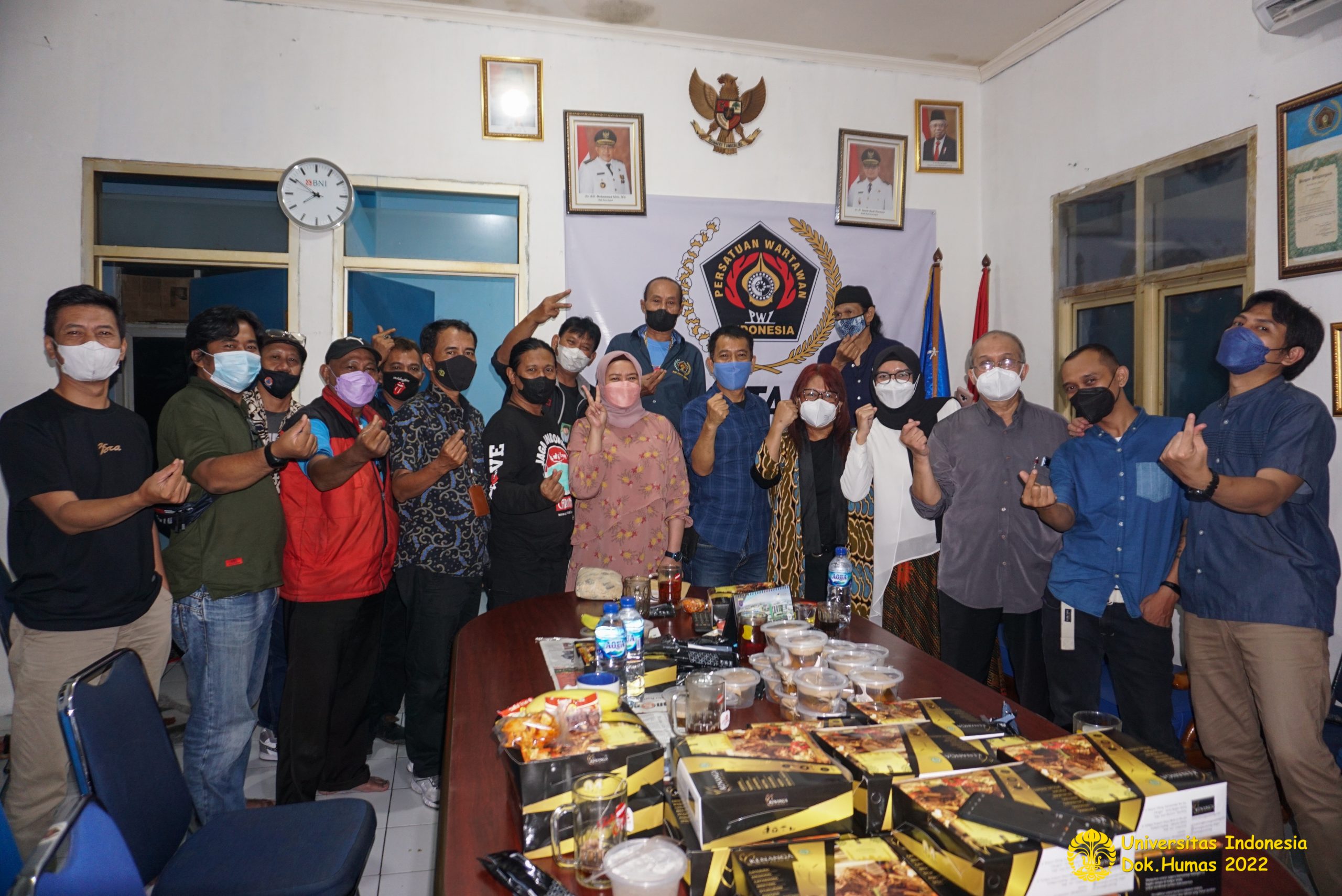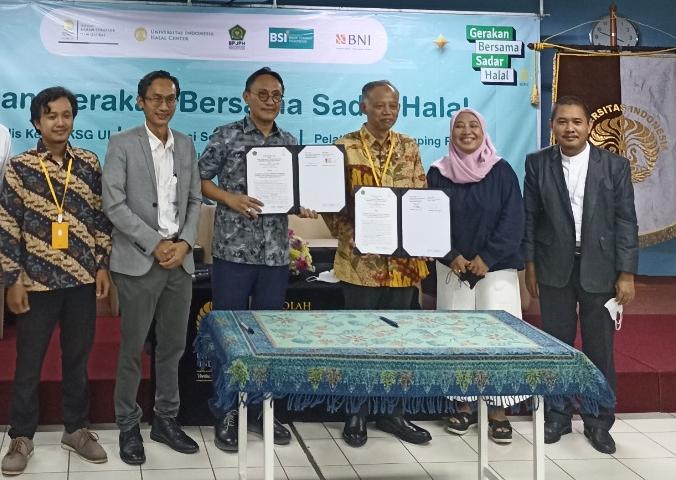The Directorate of Innovation and Science Techno Park and the Faculty of Economics and Business (FEB) Universitas Indonesia (UI) in collaboration with the National Research and Innovation Agency (BRIN) held a webinar presenting the Head of the BRIN Research Center for Cooperatives, Corporations and People’s Economy Irwanda Wisnu Wardhana SST, MPD, Ph.D as speakers. This webinar discusses how collaboration can be carried out on research in Indonesia and multi-stakeholder innovation to achieve Advanced Indonesia 2045.
In the webinar entitled “Multi-stakeholder Research and Innovation Collaboration for Achieving Advanced Indonesia 2045”, Irwanda Wisnu Wardhana explained three things related to multi-stakeholder research and innovation collaboration. First, how research and innovation have an impact on economic progress; second, how the country’s progress is highly dependent on technological progress, and third, discussing the form of BRIN’s support for the Tri Darma research-based collaboration.
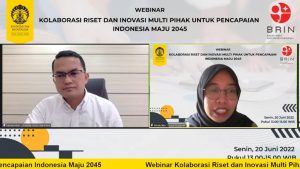
According to him, the impact of research and innovation on economic progress can be seen through the growth of the COVID-19 vaccine in Indonesia. “If there is no mass vaccination, the prediction of herd immunity and economic recovery will occur in 2024. However, after the accelerations, we are now able to take off our masks and the agents of the economy has started to recover. This illustrates how research have an colossal impact on the economy,” said Irwanda Wisnu Wardhana.
“Technology Advancement will determine the position of our nation. We must encourage current and future leaders to always care about the advancement of research and innovation. Because it can be seen in 2016 how exports of high-tech goods were relatively low compared to other countries such as China, the United States, Germany, Japan, and Mexico. This is still happening until now where we are still dominant as a market, not as a producer,” explained Irwanda Wisnu Wardhana.
At the end of the presentation, Irwanda explained the innovations that BRIN could do at UI in connecting ecosystems consisting of parties with an interest in technology research such as lecturers and students. Some of these strategies include regulatory strategies, open platform strategies to facilitate collaboration, research mobility strategies—namely facilities for students who wish to continue their education by conducting research (degree by research), and facilitation scheme strategies such as funding to collaborate with the establishment of research collaboration centers. .
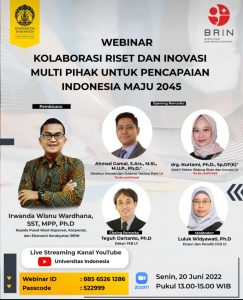
The event which was held on Monday (20/6) was held online via zoom and UI’s youtube channel. Present at the event were the Dean of FEB UI, Teguh Dartanto, Ph.D; Director of Innovation and Science Techno Park UI, Ahmad Gamal, S.Ars., M.Sc., M.U.P., Ph.D; Director of Director of Research and Innovation Data Administration and Product Management (ADPPRI) Universitas Indonesia, Suminto B. Ak., S.Sos., M.Si; and FEB UI lecturer and researcher, Luluk Widyawati, Ph.D.
In his welcoming speech the Director of ADPPRI UI Suminto representing the Deputy Rector of the UI for Research and Innovation said that Universities as centers of science and technology are the most important part in the n-helix synergy.

Universities are expected to implement Tri Darma for advanced, growing, and resilient Indonesia. “The efforts made by UI in supporting, encouraging, and creating a research and innovation ecosystem are through various facilitations including the provision of various funding schemes, both internal and external; provision of facilities & infrastructure including laboratories, co-working places, etc.; and providing various types of training and certification, among others,” said Suminto.
Meanwhile, Ahmad Gamal in his speech at the opening of the event explained the role of the Directorate of Innovation and Science Techno Park UI in conducting multi-stakeholder research and innovation collaboration by explaining how the structuring process between UI, researchers, and industrial partners in developing a joint framework.

This is done in order to achieve common goals and develop research results for the greater common interest. “Multi-stakeholder collaboration is something that is very ideal, which is the standard goal of research collaboration. However, what we often don’t understand is how difficult it is to establish a business model or cooperation model that can enable multi-stakeholder cooperation to be carried out by identifying all the interests related to the cooperation,” said Gamal.
The Dean of FEB UI, Teguh Dartanto, in his closing remarks said that science and technology must come from innovation, and innovations work together and collaborate with each other to provide the best for their respective fields. “I have always believed that there is no single problem that can be solved by one field of science, many problems are complex, multidisciplinary in nature whose solutions must be cross-disciplinary, requiring innovation, and collaboration. With the existence of BRIN, we hope to be able to answer dreams about collaboration, how to build an ecosystem, and innovation for the better,” he said.
He hopes that the collaboration with BRIN can break or reduce the bureaucratization of research. According to him, research that received too much interventions or too heavily regulated may make researchers less innovative. Not only that, he also hopes that the licensing system and anything related to research will be accelerated by BRIN as an easier permit door.

